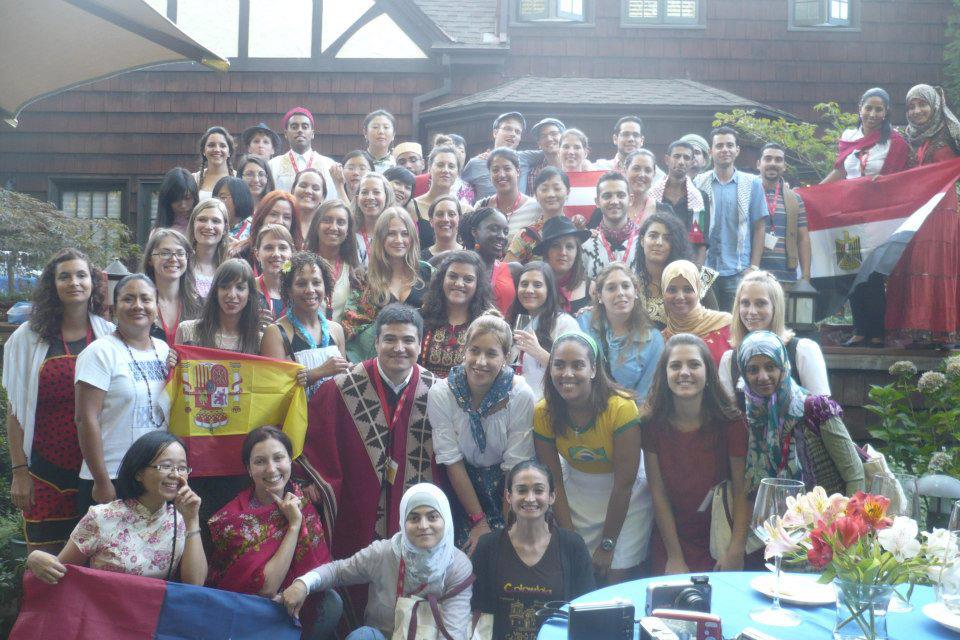“Hey, who are you?” The straightforward question came to me in my first day as a high school student in America.
I was about to begin the biography-like chronicle of my life, as I would when I was back in Afghanistan, when it hit me. Who was I, indeed?

What do Americans think of when they see this? Probably not me.
It was then that I truly realized I no longer lived in Afghanistan, where I was Abuzar Royesh, a moderately well-known student in one of the best high schools in Kabul. At that moment all the adjectives I would normally use to describe myself felt hollow and empty. Who cared what my name was or how popular I was back in Afghanistan?
I realized that the farther I got from Afghanistan, the more pieces of my identity fell away. Here in the U.S. I no longer was a Hazara, a tag that distinguished me from the people of other ethnicities, a Ghaznichi (from Ghazni Province), as the inhabitants of other provinces would identify me. My most important piece of identity was not even “Abuzar Royesh,” the birth name my parents chose to for me.
Here in the U.S. I was first and foremost an Afghan: a title that conjured up Taliban and al Qaeda, war, killings, and explosions.
Cough. I cleared my throat, “I am Abuzar. I am an exchange student from Afghanistan…” Before I finished my sentence I could already see the astonishment in his eyes.
“Wow! So cool. How did you make it here?”
I started to explain my story. But just as I began the entire monologue I had memorized in response to this question, he spurted out the next one.
“What is life like in Afghanistan?”
I now attempted to answer this question. Again, before I could get my words out, further questions started showering me incessantly. I couldn’t understand his thirst for interrogating me about Afghanistan. Having lived all of my life in Afghanistan and Pakistan, to me Afghanistan was merely a country; a homeland, just like all others. I felt as ordinary in my country as any kid from the U.S. or France would feel in theirs.

Would you imagine that this is Afghanistan? It is. (Photo: Reuters)
But seemingly this wasn’t what he thought of my country. As I would learn later on, to him and many other Americans, Afghanistan was just a remote land where thousands of American soldiers sacrificed their lives in a doomed attempt to bring democracy and stability, and where billions of American dollars had vanished. They were apparently startled to meet someone actually from there; someone who had a different story from what they knew.
Read the rest of this entry »













 Sava Mounange-Badimi
Sava Mounange-Badimi What Americans Think When They Hear Common English Mistakes
What Americans Think When They Hear Common English Mistakes 3 Things You Don't Know About Food and Why You Crave it While Living Abroad
3 Things You Don't Know About Food and Why You Crave it While Living Abroad Don't Study in the US: A Look at the Pros and Cons
Don't Study in the US: A Look at the Pros and Cons Why Aren't Americans and International Students Becoming Friends?
Why Aren't Americans and International Students Becoming Friends? Financial Aid Tips from Admissions Officers
Financial Aid Tips from Admissions Officers Top 5 Ways Academics in the US Are Different
Top 5 Ways Academics in the US Are Different What is the Best University in America?
What is the Best University in America? How I Made Myself a Good Candidate for US Admissions (and Other Advice from a Successful Applicant)
How I Made Myself a Good Candidate for US Admissions (and Other Advice from a Successful Applicant) On Being an African in the US: Navigating an Endless Set of Stereotypes
On Being an African in the US: Navigating an Endless Set of Stereotypes Battling Rejection? 5 Stories to Get Inspired
Battling Rejection? 5 Stories to Get Inspired Why You Will Gain 10 Pounds in America (and How to Lose it Again)
Why You Will Gain 10 Pounds in America (and How to Lose it Again)